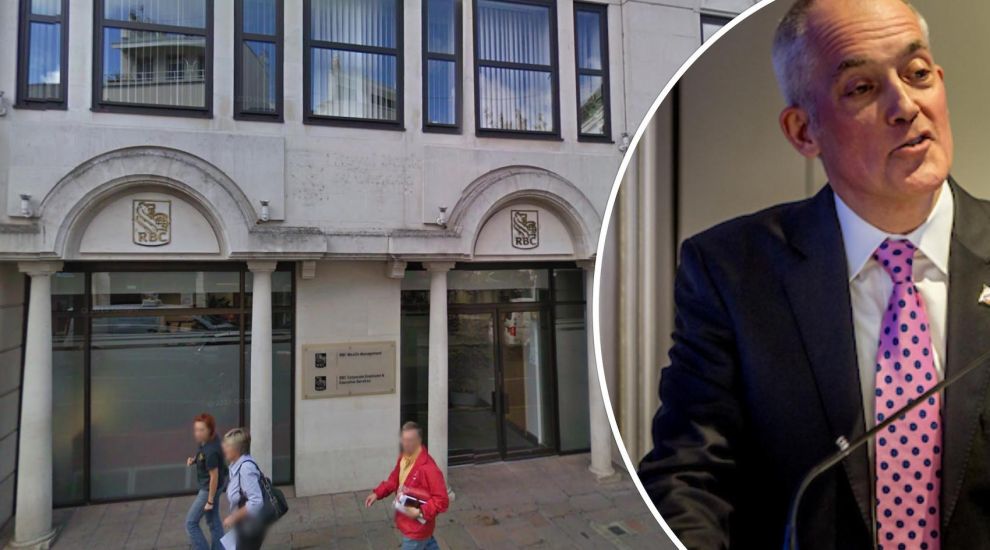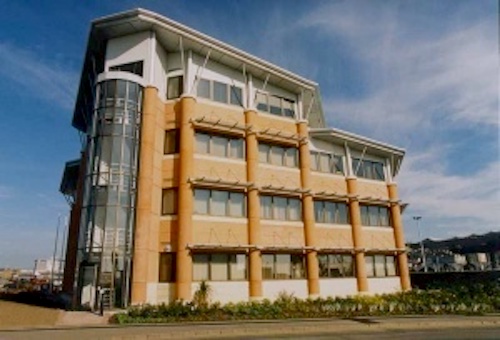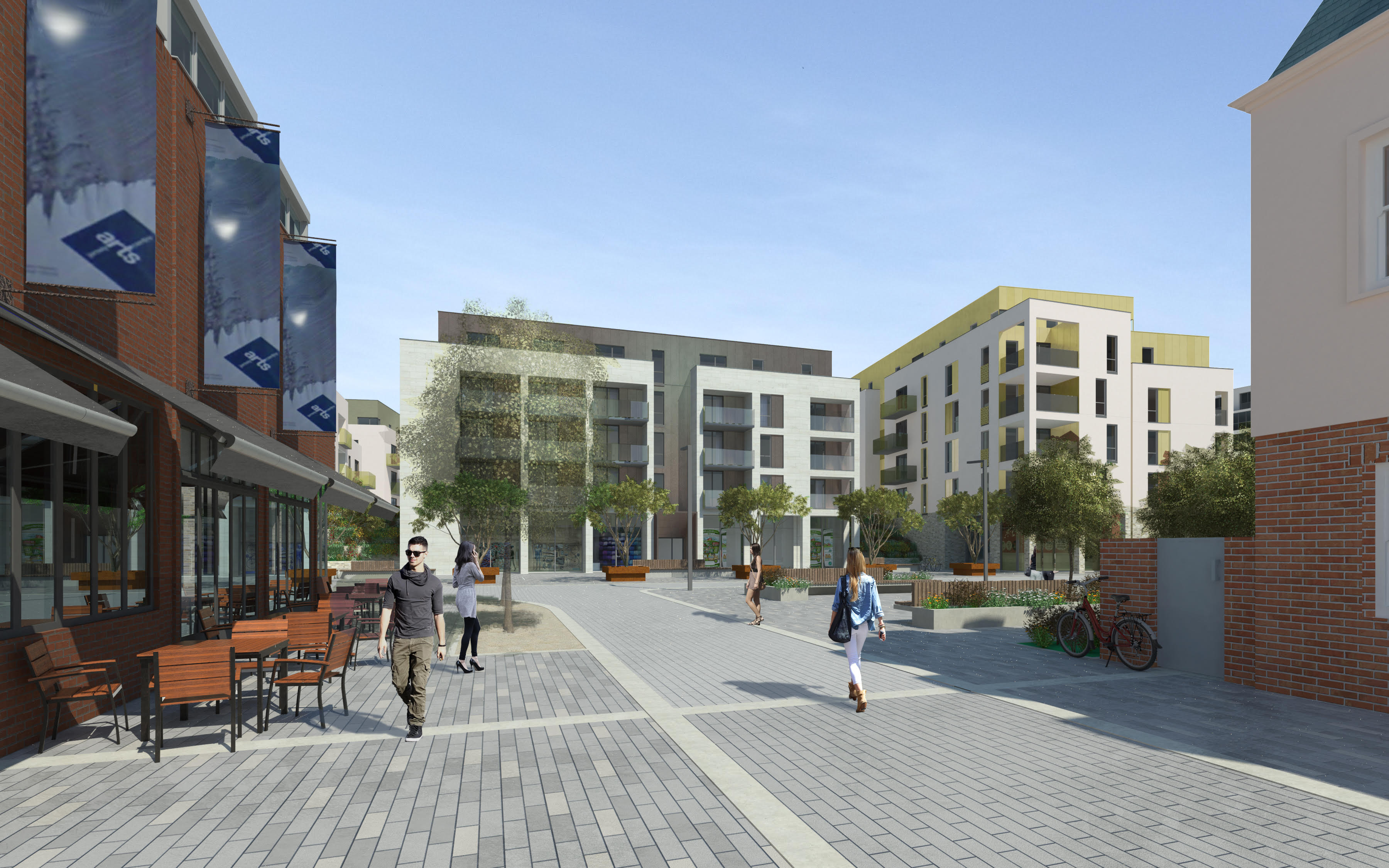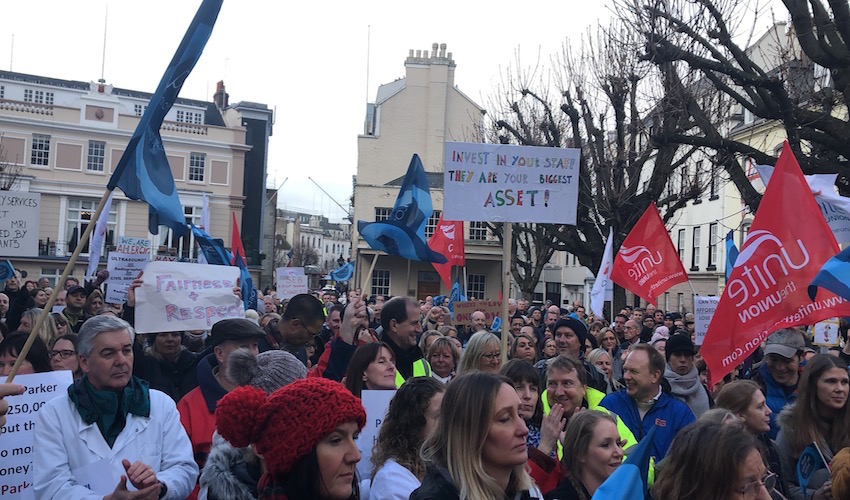

More than 500 government employees will next month move to the "temporary" new States headquarters on Broad Street, the States CEO has said in a report outlining his progress over the past six months.
Over recent months, the former RBC building has been undergoing renovations to prepare it for the entry of hundreds of workers from their former main building, Cyril Le Marquand House.
Now States Chief Executive Charlie Parker has announced that the official moving date to what will be the States’ new headquarters for at least the next five years will be in February.
Pictured: Soon-to-be former headquarters, Cyril Le Marquand House.
Added to the 500 staff from Cyril Le Marquand, the Broad Street location will also be welcoming departmental senior leadership teams based in the hospital and Highlands College.
For those that don’t fit, Maritime House – the former home of the passport office – will be used.
The ambition to draw all sections of the government together is the core of Mr Parker’s ‘One Gov’ plans, which have so far seen former Social Security building La Motte Street become the hub for all passport, taxes and planning enquiries.
The timeline for what has previously been described as a “temporary” solution until a new “purpose-built” HQ can be found was revealed by Mr Parker last week in a six-month update report.
In it, he explained that a new building would allow for “more collaborative decision-making” for those at the top levels of government”.

Pictured: Maritime House "will be used to consolidate other services that cannot fit into Broad Street".
Outlining the future of the older States buildings, Mr Parker added: “Once Cyril Le Marquand House and South Hill are vacant, the sites will then be available for clearing and redevelopment, potentially for housing or other appropriate uses.
“In the longer term, work is underway to identify a permanent government headquarters in St Helier, to which staff from Broad Street, La Motte Street, Maritime House and other offices would eventually move, further improving collaboration and efficiency and thereby consolidating our office estate. This would release a range of sites for leasing, sale or redevelopment.”
It comes as the issue of the new States HQ has featured prominently in local debate after development of social housing was officially “paused” at Ann Court amid rumours it was being considered as the preferred site.
The idea has been met with a mixed response, including pushback from the Housing Minister, Senator Sam Mézec, and former Environment Minister Deputy Steve Luce, who has brought forward proposals to forcibly restart housing construction on the St. Helier site.
Mr Parker’s report also provided insight into other areas of recent debate such as States workers’ pay and terms and conditions.

Pictured: Deputy Steve Luce has brought forward proposals to ensure Ann Court remains a social housing site, which will be debated tomorrow.
He explained that he inherited the longstanding issue of wage inequalities and anomalies across pay groups, which were left unresolved for “nearly a decade” by the previous administration.
Despite having failed to gain approval from all pay groups for his 2018/19 pay offer, which he said aimed to target higher pay increases at the States’ lowest paid employees, Mr Parker stated his commitment to finding a resolution to the impasse.
Maintaining that he wanted a “proper and genuine debate” with all stakeholders - including trade unions – he wrote: “This is critical, since we need to resolve legacy pay, terms and conditions issues if we are to meet our aspiration to be a good, modern employer which values its workforce. In some instances, these issues go back nearly a decade and are not just about financial matters alone.”
Part of Mr Parker’s ‘One Gov’ vision also involved shrinking the sizeable upper levels of government. To this end, he said in his report that he had reduced the top two tiers of senior leadership from 66 to 40.
During his one-year officially at the helm of the States, the CEO has created and recruited for dozens of Director and Director General-level posts. He explained, however, that recruitment had been “paused” in the case of three roles “owing to the shortage of high-quality applicants who could be shortlisted for interview”.

Pictured: Mr Parker said he wanted a "proper and genuine debate" about pay with all stakeholders, including unions whose members went on strike this month.
“We want to recruit the very best, and in some cases only one or two candidates met the minimum standard we expect… The Jersey Appointments Commission has instructed a review and rerun of these recruitments, in order to secure a wider field of candidates, and has asked that current interim arrangements covering these roles are extended in the meantime.”
His report also touched on other areas he deemed to have been problematic within the States, including IT Services, which he described as “woeful."
“With too many unsupported legacy systems, outdated and non-integrated IT processes, we have a significant operational deficit which needs to be urgently addressed,” he said, justifying the recent recruitment “temporary expertise” in the form of £2million ‘Digital Transformation Partner’ EY.
The States’ financial processes were described as similarly “outdated”, with Mr Parker explaining that a review was being undertaken into modernising them, while he had also “ended the longstanding practice of carrying forward unspent budget into the following year as a claim on contingencies – and have, indeed, eliminated contingencies entirely to enable better financial planning and management arrangements to be developments”.
On the political end, Mr Parker said that he was working closely with Ministers – including “briefing and advising the Chief Minister” – and had set up a Ministerial Support Unit to “provide central policy and administrative support to every Minister”.

Pictured: The States' IT systems were described as "woeful" by Mr Parker.
He concluded his report by describing his past year as one of “stabilisation”, stating that 2019 would see the government move towards “recovery, as the changes we have begun to make begin to bear fruit."
“It is, and will continue to be, hard work and a hard slog, but no large organisation that goes through significant and necessary change can achieve this without a period of upheaval, uncertainty and pain, before the recovery, repositioning and modernisation of the island’s public services that follows.”
Comments
Comments on this story express the views of the commentator only, not Bailiwick Publishing. We are unable to guarantee the accuracy of any of those comments.